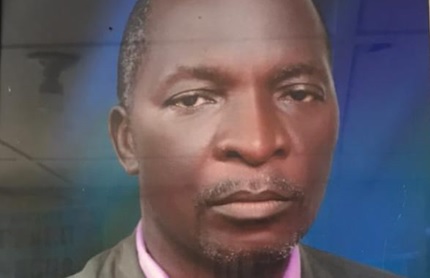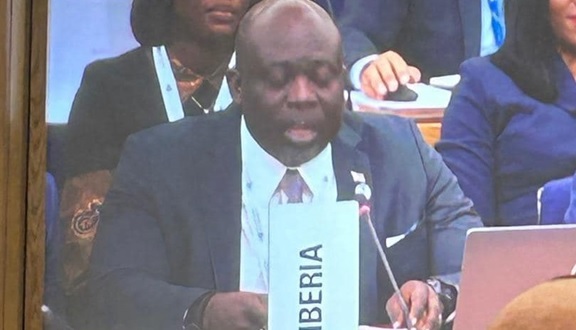MONROVIA – There is much dispute about the pace of, and approach to, development in the country. Unlike the CDC-government which captioned its development program as the “Pro-Poor” Agenda, the Unity Party-led government has described their development concept as the “ARREST” agenda. This means that the priority of the government is to address the challenges in agriculture, roads, rule of law, education, sanitation and tourism – like the other unnamed areas of youth empowerment, healthcare, etc. According to Bishop Kortu K. Brown, “this agenda, the ‘ARREST’ agenda is proverbially like a law enforcement officer in the community. He has to address reported crimes simultaneously in the community. He cannot leave any reported crimes unattended to”
“That’s how the ARREST agenda is”, he said, “It must be implemented concomitantly”. The UP government agenda is laudable although in-exhaustive. However, it must be executed as “something that happens at the same time as something else”. That means, you cannot address the building of roads infrastructure without addressing the challenges of, and/or strengthening the “rule of law”; you cannot address the challenges of agriculture without addressing the challenges in the education system and so on, at the same time. “That’s why I see a lot of concerns about the bringing in of the yellow machines. It is intended to address the challenges in the road infrastructure of the country which is highly commendable and difficult to dismiss.
However, there is another component that must be addressed at the same time which is what has eroded this country for a long time: strengthening the rule of law which includes promoting transparency, accountability, fiscal discipline, justice; enabling integrity institutions like the PPCC, GAC, LACC and Internal Audit Agency to perform their responsibilities in the broader sense of promoting the rule of law. “When President Tolbert built more than 600 miles of roads in the country and ensured that every county had a piece of road equipment to maintain the roads, it was still the concern for the disrespect of the rule of law by the True Whig Party government that Liberians were concerned about”, the former President of the Liberia Council of Churches added.
People argued at the time that there was no respect for the rule of law; no accountability, that justice was for the highest bidder, that government officials did whatever seem right in their own eyes, the big-shots and small-people mentality prevailed and generally, lack of coherence in governance; the slogan: “I am in go on…”, we care less about the others’ views. “I don’t think this is what we still want as Liberians. We want a Liberia where the rule of law is respected and enforced. We all know it’s beneficial to the country because it makes it look responsible, globally”, he said, adding, “it takes nothing from the dire need for road equipment to help improve that critical and long-neglected infrastructure especially in southeastern region of the country”.
The “ARREST” agenda is intended, in a programmatic way, to “arrest” like a law enforcement officer, the challenges to Liberia’s development in the sectors already identified by the UP government. President Joseph Boakai has committed to arresting and reversing the challenges in the agriculture, roads, rule of law, education and tourism sectors. We commend him for his boldness. However, we must ensure that we are also addressing all of the challenges together including the fact that the government requires legislative approval to commit the country to any borrowing of money for any development purpose.
The Apostolic Pentecostal Church cleric who was speaking in an open interactive forum on the church campus of New Water in the Desert Assembly in Brewerville, Montserrado County commended the Ministry of Public Works for the “encouraging efforts” so far in maintaining critical road infrastructure in neglected parts of the country including the southeast and north-central parts of the country. “We hear from news reports that the roads are pliable in the middle of the rainy season. Even though we still have about two months to go in the wet season; however, just to hear that the roads are usable with much ease during this time of the year, is highly commendable. We encourage the Ministry of Public Works to not let their guard down”
Bishop Brown opined that without the much-talked about “yellow machines”, Public Works is holding up the roads against wear and tear during this heavy rainy season; might it be a good thing if the maintenance of the roads were contracted to engineering companies that could be responsible for their maintenance all year-round instead of probably building a huge logistics for county administrations that they couldn’t be able to handle due to the lack of adequate budgetary support for maintenance and proper supervision, amongst others. “Maybe privatizing road maintenance like electricity could do the trick for Liberia”.







